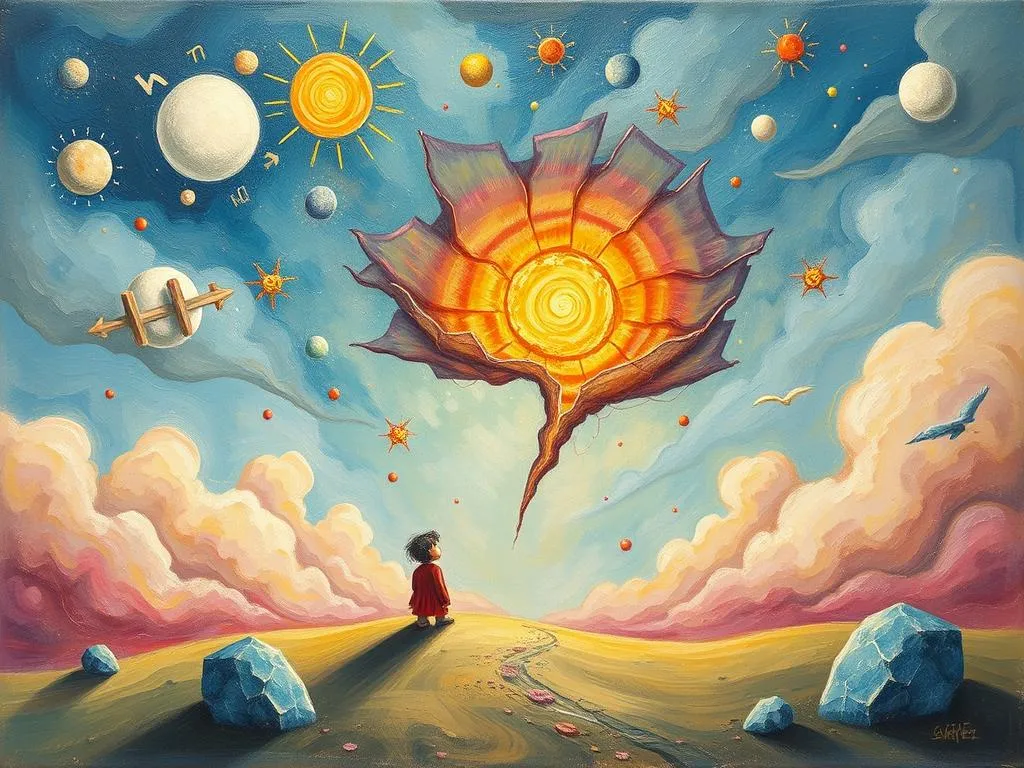
Introduction
Dreams have fascinated humanity for centuries, serving as a bridge between our conscious and subconscious minds. They are often seen as windows into our inner selves, revealing emotions, desires, and fears that we may not confront during our waking hours. The intrigue surrounding dreams lies not only in their mysterious nature but also in their potential to offer insights into our lives. Understanding dream symbolism can empower individuals to decode their dreams, giving them a deeper connection to their personal experiences and emotions.
Symbolism and Meaning
At the heart of dream interpretation is the concept of symbolism. Dreams are rich with symbols that can vary widely in meaning based on personal experiences and cultural backgrounds. For instance, a house in a dream often represents the self or the dreamer’s psyche. Different rooms may symbolize various aspects of one’s personality or emotional state. A basement might indicate suppressed feelings or unresolved issues, while an attic could represent memories or aspirations.
Another common symbol is water, which can signify emotions and the unconscious mind. Calm water may suggest tranquility and clarity, while turbulent water could indicate emotional turmoil or confusion. The interpretation of water can also shift depending on its form—being submerged may represent feelings of being overwhelmed, while floating may suggest a sense of ease or acceptance of one’s emotional state.
Animals frequently appear in dreams, serving as representations of instinctual drives or traits. For example, a lion might symbolize courage and strength, while a snake could evoke feelings of fear or transformation. The context of the encounter with the animal plays a crucial role in determining its meaning. Did you feel threatened, or did you observe it peacefully? Your emotional response can unlock deeper interpretations.
Furthermore, the presence of people in dreams often holds significant meaning. Dreaming of a loved one may reflect your feelings toward them or unresolved issues in that relationship. Conversely, encountering strangers might symbolize aspects of yourself that you have yet to explore or accept.
These are merely starting points for interpretation, as the meaning of symbols can shift dramatically based on personal experiences. Recognizing the subjectivity of symbols is vital for effective dream analysis.
Key Scenarios and Variations
The context of a dream can alter its meaning profoundly. For example, consider a dream about flying. This scenario can evoke feelings of freedom, control, or escape from life’s challenges. However, if the dreamer experiences fear while flying, it may symbolize anxiety about losing control or facing overwhelming situations. Alternatively, a dreamer who enjoys soaring through the skies may find it reflects a sense of liberation and achievement in their waking life.
Similarly, dreams about being chased can take on various interpretations based on the circumstances. If the pursuer is someone familiar, it might indicate unresolved conflict or feelings of guilt concerning that person. In contrast, being chased by an unknown entity may symbolize avoidance of a problem or fear of the unknown in one’s life. The emotions felt during the chase—fear, exhilaration, or determination—will provide additional layers of meaning.
Another common scenario is dreaming of falling. This can often evoke feelings of vulnerability or insecurity. The context matters: are you falling without fear, or is there a sense of panic? A fear-filled fall may signify feelings of failure or loss of control in waking life, while a calm descent might suggest a surrender to circumstances, accepting situations beyond one’s control.
The significance of losing something in a dream, such as keys or a wallet, can also vary. Losing keys might symbolize feelings of being locked out of opportunities or lacking direction, while losing a wallet could reflect concerns about self-worth or financial security. The emotional weight of these losses can provide further insight into what the dreamer is grappling with in their daily life.
Real-Life Connections and Takeaways
Dreams serve as profound reflections of our waking lives, often pointing to unresolved issues, aspirations, or emotional states. To harness the power of your dreams, consider keeping a dream journal. Recording your dreams immediately upon waking can help you remember details and emotions that may fade as the day progresses. Over time, patterns may emerge that reveal recurring themes or symbols, allowing for deeper personal reflection.
Engaging in self-reflection after a dream can also be beneficial. Ask yourself questions about how the dream made you feel and what aspects of your life might be influencing the dream’s content. For instance, if you dreamt of being lost in a familiar place, consider areas in your waking life where you might feel directionless or uncertain.
Additionally, explore the emotions tied to the dream. Dreams often amplify feelings that may be muted in our conscious lives. If you experienced joy in a dream, consider where you might cultivate more happiness. Conversely, if the dream evoked fear or anxiety, think about what might be causing these feelings in your waking life.
Personal reflection is integral to dream analysis. Consider how the symbols and scenarios relate to your current life circumstances or past experiences. Are there unresolved issues that the dream could be prompting you to address?
Finally, understanding that dreams can serve as a creative outlet may also enhance your interpretation. The imagery and narratives found within dreams can inspire art, writing, or other forms of expression. This creative process can provide clarity and further understanding of the themes present in your dreams.
Conclusion
The journey of dream interpretation is a deeply personal endeavor. By unraveling the symbolism and analyzing the scenarios that unfold in your dreams, you can unearth insights that resonate with your waking life. Dreams invite us to confront and explore our innermost thoughts and feelings, offering a path to greater self-awareness.
As you engage with your dreams, remember that the meanings are not fixed; they shift as you grow and change. Embrace the fluidity of interpretation, and allow your dreams to guide you in understanding yourself more profoundly. Whether through journaling, reflection, or creative expression, the process of exploring your dream symbolism can be a transformative experience, leading you to a richer understanding of your inner world.







